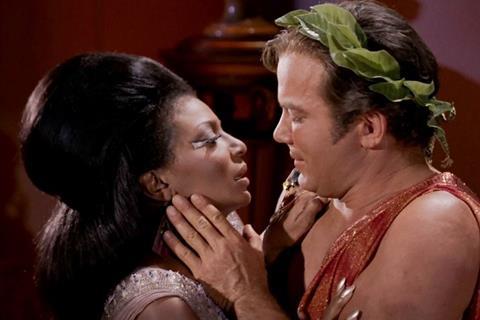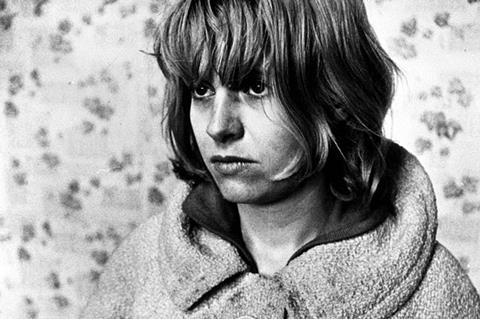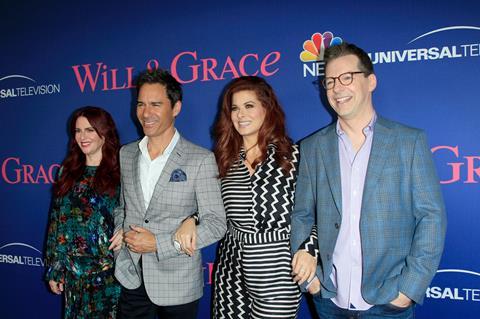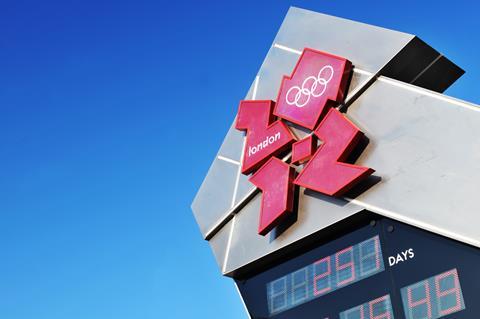To mark World Television Day, we have assembled a list of five influential television programmes that have gone on to have a distinct impact on society.
The United Nations proclaimed 21 November as World Television Day for the first time in 1997.
It is designed to be less of a celebration of the television itself as the impact it can have on decision making at all levels of government, both national and international, by bringing world attention to conflicts and threats to peace and security. And, as the UN says, even more that, “its potential role in sharpening the focus on other major issues, including economic and social issues.”
To help mark World Television Day 2018 we have put together a list of five programmes that have had a major impact above and beyond their screening. Featuring three UK and two US shows across 51 years the list is, of course, by no means comprehensive. But it’s not meant to be; this is an illustration that television programmes can help generate positive social outcomes in all languages and in all countries around the world when they are created by passionate men and women with a voice and the freedom to express it.
We have also deliberately looked outside news and current affairs to genres not usually thought of as being instrumental in affecting social change. Arguably advertising could be included here as well, especially the landmark public information films that have done so much to change the public attitudes to drink driving in the UK, for example. That, though, is a discussion for another time.
Star Trek
NBC (1966 - 1969)

Hard to believe now, especially as the programme has become such an influential part of modern culture, but Star Trek: The Original Series only ran for three seasons before being cancelled by NBC due to poor ratings. But in its 79 episodes, Gene Roddenberry’s avowedly utopian space western changed the way that the US thought about race relations in particular.
While the famous interracial kiss between Captain Kirk and Lt Uhura in the season three episode ‘Plato’s Stepchildren’ was not actually the first on US TV, it was the most high-profile and helped cement Nichelle Nichols’ character’s place in TV history. Arguably, she belonged there from the very beginning though, Uhura being the first time American viewers got to see a black woman on television that wasn’t simply a two-dimensional stereotype.
Her importance in the role was even recognised by Dr Martin Luther King. Nichols wanted to leave Star Trek after the first season to pursue a role on Broadway, but, as she revealed in a Reddit interview, was persuaded to stay by Dr King.
“Dr. Martin Luther King, quite some time after I’d first met him, approached me and said something along the lines of ‘Nichelle, whether you like it or not, you have become a symbol. If you leave, they can replace you with a blonde-haired white girl, and it will be like you were never there. What you’ve accomplished, for all of us, will only be real if you stay.’ That got me thinking about how it would look for fans of colour around the country if they saw me leave. I saw that this was bigger than just me.”
She also confirmed Roddenberry’s comment on the King conversation as being along the lines of “Finally, someone gets it.”
Cathy Come Home
BBC (1966)

If Star Trek took three series to start to alter US attitudes to race, the landmark BBC play Cathy Come Home took just 75 brutal minutes to change British attitudes to homelessness and lead directly to the establishment of one of the country’s leading charities.
Written by Jeremy Sandford and directed by Loach, the play follows the descent of a young couple, Cathy and Reg, into poverty and homelessness, and concludes with Cathy’s children being taken away from her by social services in a heart-wrenching, largely improvised scene on Waterloo Station. It was watched by 12 million people, just under a quarter of the UK population at the time, and while its cinema verité aesthetic broke new ground in TV production at the time, it was the subject matter that caused the real impact.
Phonelines were jammed, questions were asked in the House, and a publicity campaign run by two reforming Tories, William Shearman and Ian Macleod, highlighted the increasing plight of homeless people. It also directly let to the foundation of the homelessness charity, Crisis, and provided a significant boost to the newly formed Shelter too, which launched coincidentally a couple of weeks after it was first broadcast.
Will & Grace
NBC (1998 - 2006)

In 2012, then US Vice President Joe Biden made history by becoming the highest ranking US official at the time to endorse the idea of equal marriage rights for gay and lesbian citizens.
Speaking on Meet the Press he said that change begins “when the social culture changes. … I think Will & Grace did more to educate the American public more than almost anything anybody has done so far. People fear that which is different. Now they’re beginning to understand.”
Will & Grace ran across eight seasons and 216 episodes, earned 18 Primetime Emmys, and was a regular feature in the Nielsen Top 20 for at least half its lifespan. Before Will & Grace TV programmes approached gay themes with caution, and being gay was often the dramatic or humorous punchline. Afterwards, it started to become just something that people were.
In 1998 when Will & Grace launched, Ellen DeGeneres’ character in the eponymous sitcom Ellen (and DeGeneres herself in real life) came out as gay. Broadcaster ABC actually ran a warning in front of every episode of the show’s following — and final — fifth season saying, “This program contains adult content. Parental discretion is advised.” By the time Joe Biden spoke on the subject, it was already hard to imagine that had ever happened.
London 2012 Paralympic Games
Channel 4 (2012)

Channel 4 produced its biggest-ever campaign to promote its London 2012 Paralympic coverage, running it across 78 channels and over 2,000 poster sites. As a result, even before the games started, it could claim its stated goal of raising awareness of the event as a success; unprompted awareness of the games rose from 16% at the end of July to a massive 77% at the end of August and the start of the actual games themselves.
The broadcaster threw a huge amount of resources at the coverage, committing to producing 500 hours of coverage across all platforms, approximately 4x the amount broadcast from the preceding Beijing 2008. Representation was a crucial part of its strategy, with £850k spent on finding, recruiting, training, and developing a new generation of disabled onscreen talent to present the coverage.
The result was a breakthrough in mainstream acceptance of disabled people. Surveys conducted for the broadcaster found that 83% of viewers agreed that Channel 4’s coverage of the Paralympics will improve society’s perception of disabled people, and 64% of viewers said they felt more positive towards disabled people as a result of watching the Games.
As The Observer put it: “This programme has begun to change not just the way we talk about [disabled people] but, crucially, the way we think about them.”
Blue Planet II
BBC (2017)

2017’s seven-part Blue Planet II was pieced together from footage captured during an estimated 4000 dives by 125 expeditions spread across the globe over a four year period. Unusually for such a high-profile BBC nature documentary though, as well as the usual stunning wildlife footage the Sir David Attenborough-fronted programme adopted a campaigning tone when it came to the human impact in the ocean ecosystems and plastics pollution.
With the last episode in particular dedicated to highlighting the problem, what became dubbed the ‘Blue Planet Effect’ swung into action. Close to home the BBC took the decision to ban single use plastics by 2020; the Royal estates did similar, allegedly prompted by the Queen’s watching of the documentary, and the government pledged over £60 million to fighting the problem.
“Nobody who watched Blue Planet will doubt the need for us to do something,” Theresa May told Andrew Marr.
Whether action will be in time to save the most fragile marine ecosystems is unknown. But Blue Planet II certainly put the subject on the agenda; an even more remarkable feat given that it was only decided on as a theme once the filming crews started reporting coming across plastic waste time and time again during their dives.



























No comments yet